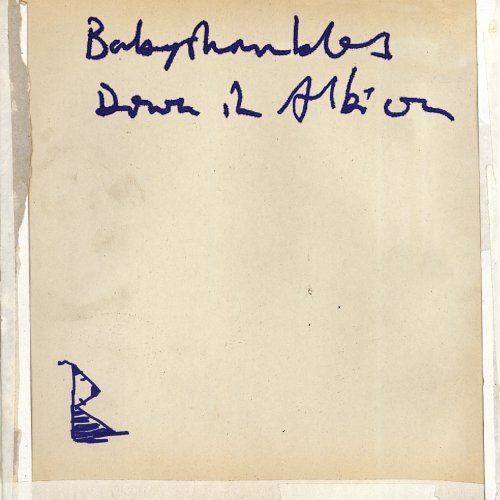Song Stories: Babyshambles: Albion
"Albion" stands as one of the most significant songs in Peter Doherty's career, transcending numerous bands and projects. Originally an unfinished Libertines demo, it appeared in acoustic sets and bootleg recordings before being properly recorded and released by Babyshambles in 2005 as the second single from their debut album, Down in Albion.
Though it was officially released by Babyshambles, the song has never been tied to one band. It has been performed across Libertines, Babyshambles, and even Doherty's solo gigs. While "Albion" undeniably belongs to him, it also represents Doherty’s vision of a hazy, romanticized mythical England a vision central to both The Libertines and Babyshambles.
In contrast to many of The Libertines’ fast-paced, raw anthems, "Albion" is a slow, meditative ballad. Its stripped-back sound, built around a gently strummed acoustic guitar, lets the lyrics take center stage. But "Albion" is more than just a melancholic folk song. It’s a deeply personal and poetic reflection on England, nostalgia, and the pursuit of an idealized dream. In many ways, it encapsulates Doherty’s artistic ethos: a longing for a mythical past, a celebration of beauty amidst decay, and a restless search for meaning in a world that often feels lost.
The song marked Babyshambles' first acoustic release, and at its core, "Albion" is a travelogue—but not in the traditional sense. It’s not about grand adventures or thrilling escapades; rather, it’s a wistful, almost hallucinatory journey through the towns, cities, and landscapes of England. The lyrics unfold like fragmented memories, listing places in a way that feels both arbitrary and deeply evocative.

The song opens with a subtle, melancholic introduction: "Down in Albion / They're black and blue but we don’t talk about that / Are you from 'round here? / How do you do? I'd like to talk about that."
Right from the start, Doherty sets a tone of disillusionment. "Albion" (a poetic name for England) is bruised and battered, but no one wants to acknowledge it. The phrase "black and blue" hints at the darker realities beneath the romanticism—violence, struggles, and alienation. Yet, rather than succumbing to despair, the song moves forward, searching for something worth holding onto.
As "Albion" unfolds, it transforms into a stream of consciousness, a dreamlike list of places across the UK: "If you're looking for a cheap sort / Glint with perspiration / There's a four-mile queue / Outside the disused power station."
The mention of a "cheap sort" and a "disused power station" deepens the song's theme of faded glory—a vision of an England that is both grand and crumbling. Doherty celebrates the gritty reality of England, not the postcard-perfect version, embracing its late-night encounters, forgotten corners, and the beauty found in the overlooked and abandoned.
Then comes the most well-known section of the song, where Doherty name-drops towns and cities across the country:
"Anywhere in Albion / Anywhere in Albion / Anywhere in Albion / Anywhere in Albion…"
The repetition feels almost like a mantra, a hypnotic list that turns into an incantation. The places he mentions—Hackney, Brixton, Newcastle, Stroud, Humberside aren’t tourist hotspots. They are working-class towns and neighborhoods, places that hold personal meaning rather than universal appeal. By listing them so casually, Doherty gives them a sense of importance, elevating them from the mundane to the mythical.
But Albion isn’t just about the physical locations. It’s about what they represent. To Doherty, Albion isn’t merely England; it’s an ideal, a romanticized vision of the country that exists as much in dreams as in reality. This idea is reinforced by the references to "Arcadia," a concept he has used in multiple songs.
If Albion is the backdrop, Arcadia is the ultimate goal. A utopian dreamland free from the constraints of modern life, a place of artistic freedom, love, and purity.
Yet, for all its beauty, Albion carries a deep sense of sadness. The longing for a better world is constantly undercut by the awareness that it may never exist. The song captures the feeling of being in love with something you can never quite reach, making it one of Doherty’s most profoundly bittersweet compositions.
The song had been used in The Libertines live sets, and thus there was some controversy from fans when it was released. oherty would often play it acoustically during impromptu gigs, soundchecks, or radio sessions. These performances were often raw and unpolished, with Doherty sometimes stumbling over lyrics or cutting the song short. Yet, even in its unfinished form, Albion captivated fans, many of whom saw it as one of his most beautiful and personal songs. After Doherty’s departure from The Libertines in 2004, Albion became a staple of his new band, Babyshambles. It was finally recorded and released as a single in 2005, before appearing on their debut album Down in Albion. The Babyshambles version of the song retained the stripped-back acoustic feel of the early demos, but with a more refined, deliberate approach.
Despite being officially recorded and released by Babyshambles, following The Libertines reunion in 2010. It was added into The Libertines setlist, with both Carl Barat and Pete Doherty taking vocal duties on the song.
The band played the song at their huge 2014 Hyde Park concert, in their biggest moment to date. One of the most intimate moments was Doherty and Barat singing a song about England.

The song is one of Doherty's best efforts a song that still carries his thoughts and feelings about the place he has called home. Albion continues even over 20 years later to be a huge part of The Libertines idea, and Doherty's mind. His opinions of England may have changed, however this song is still a glimpse at a dream like place, that he so vividly describes.It's one of the most underrated British songs of the 2000s. A real love letter to England by one of Britain's best ever songwriters.
Thank you for reading
Jack x